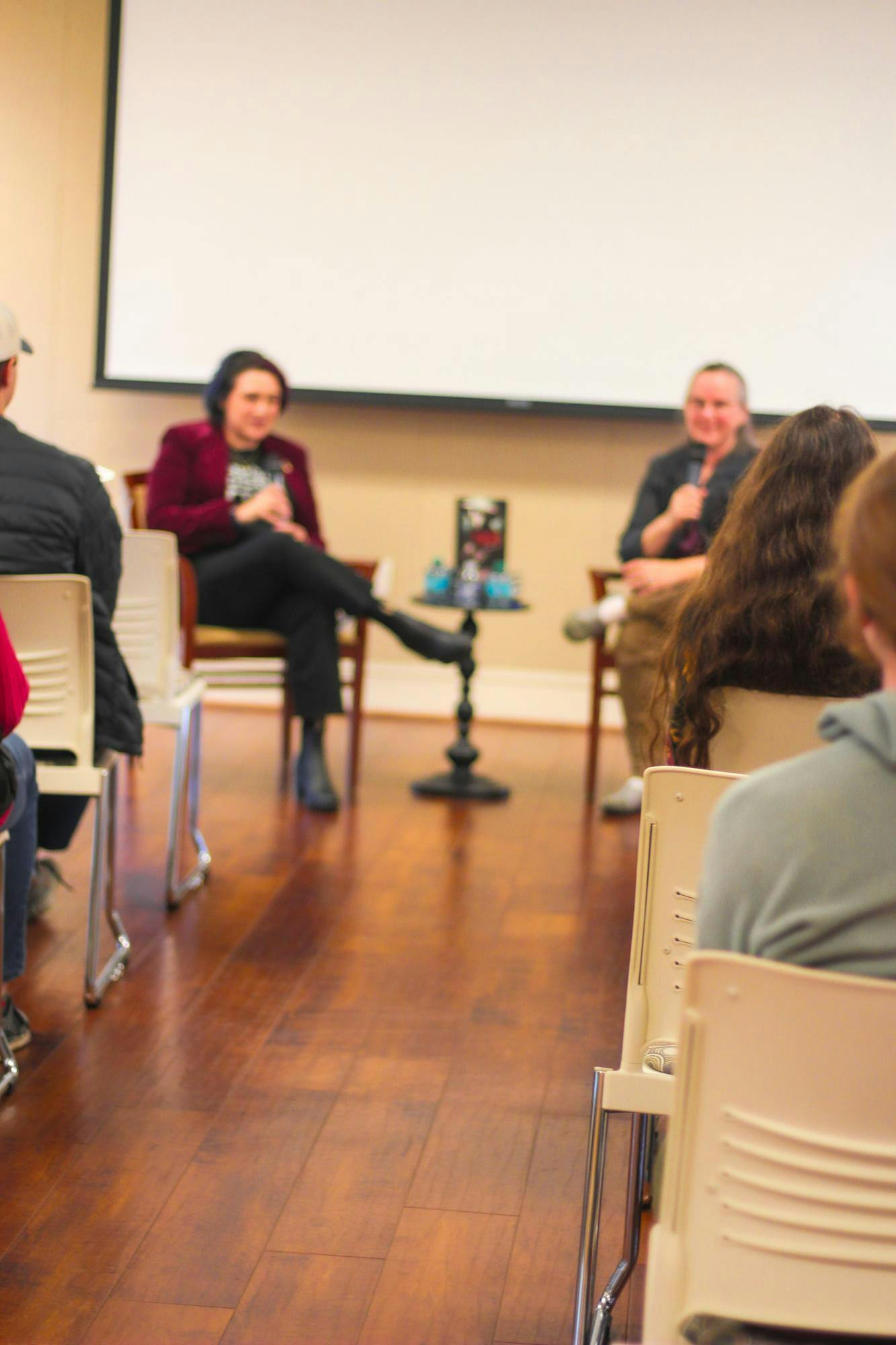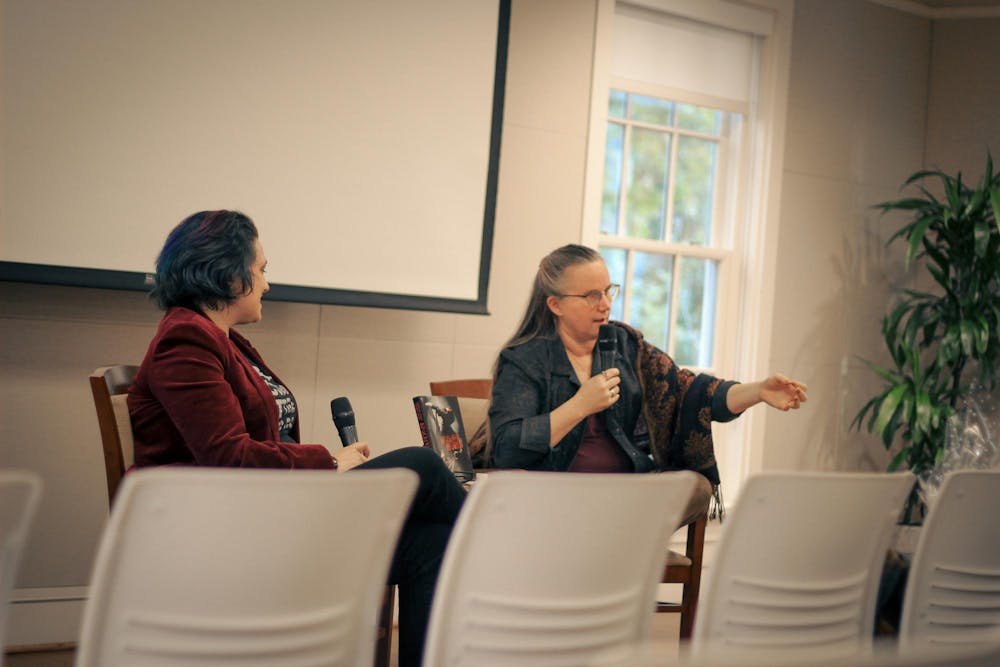 The latest Talking Games discussion Thursday afternoon featured Meguey Baker, tabletop role-playing game designer. The conversation was led by Dr. Emily Friedman at Caroline Marshall Draughon Center for the Arts & Humanities, and it opened the doors for a conversation that drifted easily between storytelling, community and the strange intimacy of shared imagination.
The latest Talking Games discussion Thursday afternoon featured Meguey Baker, tabletop role-playing game designer. The conversation was led by Dr. Emily Friedman at Caroline Marshall Draughon Center for the Arts & Humanities, and it opened the doors for a conversation that drifted easily between storytelling, community and the strange intimacy of shared imagination. Baker, best known for co-creating "Apocalypse World" with her husband Vincent Baker, spoke just days before the release of the game’s third edition, "Burned Over." The series is famous among tabletop players for its emphasis on collaborative storytelling and emotional realism. These qualities came out of her own search for connection while raising her children and trying to keep a playgroup together, Baker explained.
Dr. Friedman kicked off the conversation by calling Baker “someone we all owe a lot to,” crediting her influence on the bloom of independent story games over the past decade. Baker seemed slightly embarrassed by the praise, deflecting it with anecdotes that blended humor and memory. She recalled years from her childhood, like her mother reading aloud until her voice faded late at night, a memory Baker tied to “the power of a story that connects people.”
That power, she suggested, isn’t confined to books or games but runs through all creative work. Baker studied textiles in college. She described the thread as “the first thing we all make,” a metaphor and truth for how human communities weave themselves together, both with tools and stories. “We are in community constantly,” Baker said.
The talk turned to the changing nature of play, from the early days of online bulletin boards to the ease of today’s digital tools. Baker reflected on how PDF distribution and open-access design have allowed communities to form around niche interests, but also how “communities change over time.” "Burned Over," she explained, grew out of wanting a version of "Apocalypse World" her then-12-year-old could safely play. “There are things wrong in the world,” she said, "everyone knows what they are. The question is how we get through them together.”
Dr. Friedman pressed her on how a game set after an apocalypse could still foster values like care and consent at the table. Baker, who has a background as a sex educator, linked consent in play to everyday ethics. “It’s about how we are together,” she said simply.
The conversation shifted towards one's purpose in life. When asked about the guiding principle in her work, Baker didn’t hesitate.“I will not abandon you," she said, referring to her unyielding sense of community and how it connects to TTRPGs. She admitted it is a promise that can be difficult to keep, whether in life or at the gaming table, but one worth trying for. If we care about the journey, we’ll eventually hit rocky places, she explained. Our job is staying with each other through it.
As the hour wound down, students and community members lingered for questions, bringing a mood of quiet reflection. Much of what made the event memorable was the gentle rhythm of Baker’s voice, part teacher, part storyteller, and entirely aware of the fragile threads that tie people together.
Talking Games continues Tuesday, November 18 at 4 p.m. at Pebble Hill with "Playful Criticism: Conversation on a Career in Game Journalism and Content Creation with Quintin Smith." Smith, a longtime games journalist and critic, will discuss his career spanning traditional journalism and new media, including more than a decade as a YouTube creator. A reception will follow.



